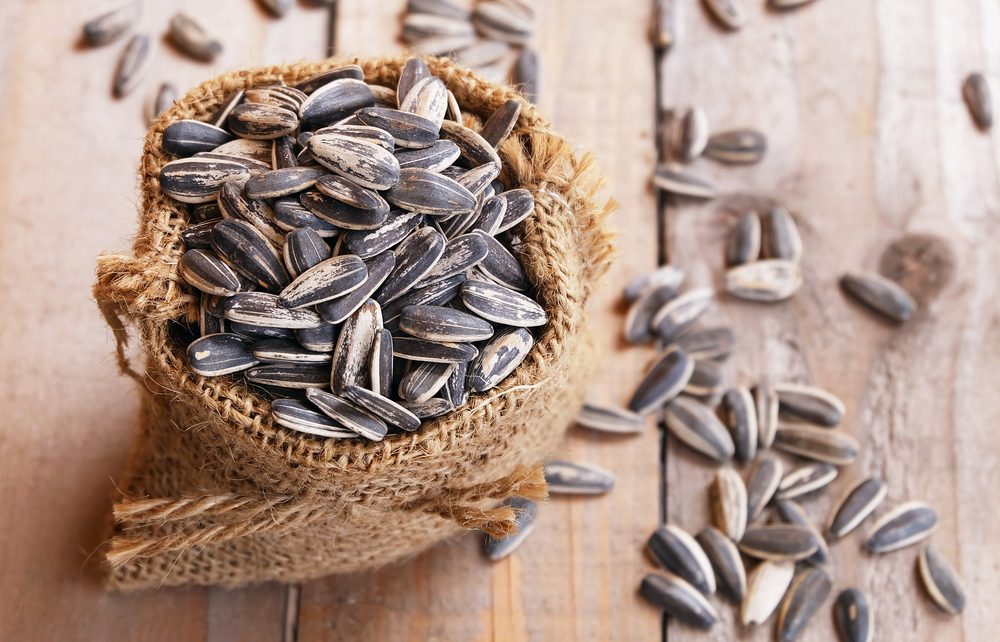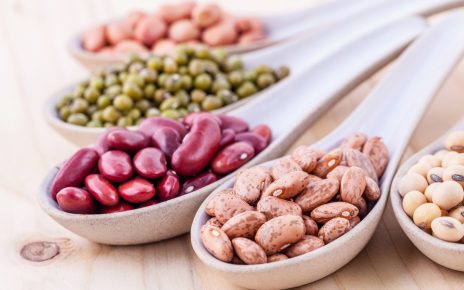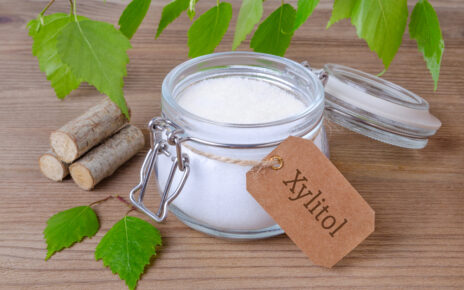You might not be aware, but sunflower seeds could be a game-changer in your keto journey, offering more than just a crunchy snack. With their unique nutritional profile, they straddle the line between being keto-friendly and potentially tipping you over your daily carb limit.
As you navigate the tightrope of maintaining ketosis, it’s crucial to understand how these tiny seeds fit into your diet plan. Let’s explore whether sunflower seeds can be a part of your keto lifestyle without sacrificing your goals, and what you need to consider to make them work for you.
Understanding the Keto Diet
At its core, the Keto diet revolves around drastically reducing your carb intake to push your body into a state of ketosis, where it burns fat for fuel instead of glucose. You’ve probably heard a lot about it, but there are a few key points you might be getting wrong due to common keto misconceptions.
First off, while it’s true that the diet emphasizes fat intake, it doesn’t mean you can eat all types of fat indiscriminately. Quality matters. You’ve got to focus on healthy fats from sources like avocados, nuts, and certain oils, while keeping an eye on your protein sources as well. Speaking of protein, it’s essential, but too much can actually kick you out of ketosis. That’s a nuance some folks miss.
Another misconception is that the keto diet is rigid and restrictive. In reality, there’s quite a bit of diet flexibility if you’re willing to do a bit of meal planning. Yes, you need to keep your carb count low, but that doesn’t mean your meals have to be boring. With a little creativity, you can enjoy a wide variety of flavors and textures within the keto framework.
Meal planning is your best friend on this journey. It helps you balance your fat intake, ensure you’re getting adequate protein from the right sources, and maintain that all-important state of ketosis. So don’t be put off by the myths. Keto can be flexible, tasty, and, yes, even easy, with the right approach.
Nutritional Profile of Sunflower Seeds
Diving into the nutritional profile of sunflower seeds reveals they’re packed with healthy fats, protein, and fiber, making them a potentially excellent addition to your keto diet. These seeds aren’t just nutritious; they’re versatile and can easily be incorporated into your daily eating plan. However, it’s crucial to be aware of seed allergies, as they can pose risks for some individuals. Always consult with a healthcare provider if you suspect you might have an allergy.
Roasting methods can significantly affect the nutritional value of sunflower seeds. Opting for dry-roasted seeds without added oils can be a healthier choice, preserving the integrity of their fats and preventing unnecessary carb additions. Exploring various flavor variations can keep your palate excited. From simple salted to spicy jalapeño, there’s a wide array to satisfy your taste buds while sticking to your keto goals.
Storage tips are vital to maintaining the freshness and nutritional quality of sunflower seeds. Keeping them in an airtight container in a cool, dark place can prolong their shelf life. This way, you ensure the seeds’ healthy fats don’t go rancid, preserving their taste and benefits.
Lastly, the germination potential of sunflower seeds adds another layer to their appeal. Sprouting them can enhance their nutritional profile further, making the nutrients more bioavailable. It’s a simple process that can amplify their health benefits, fitting perfectly into a health-conscious, keto-friendly lifestyle.
Carbohydrate Content Analysis
Let’s examine the carbohydrate content of sunflower seeds to understand their compatibility with a ketogenic diet. When you’re following a keto diet, you’re aiming to minimize your carbohydrate intake to force your body into a state of ketosis, where it burns fat for energy instead of carbs. Sunflower seeds, with their complex nutritional profile, might initially seem like a gray area. However, a closer look reveals details about their carb content that might surprise you.
First off, the seed digestion rate plays a crucial role. Sunflower seeds are digested more slowly than many other snacks, thanks to their high fiber content. This slower digestion rate means a more gradual release of energy and less of a spike in blood sugar levels. Speaking of fiber, a fiber impact analysis shows that a significant portion of the carbs in sunflower seeds comes from fiber, which can offset the total carb count on a keto diet since fiber doesn’t raise blood sugar levels.
Comparing the glycemic index of sunflower seeds to other foods, they rank relatively low. This low glycemic index indicates a minimal impact on blood sugar levels, a plus for maintaining ketosis. Furthermore, resistant starch content in sunflower seeds contributes to this effect, as resistant starches aren’t fully broken down and absorbed, mirroring fiber’s effect on blood sugar levels.
Lastly, a total sugars calculation further illuminates their keto compatibility. Sunflower seeds contain minimal sugars, further reducing the risk of disrupting ketosis. All these factors combined suggest that, in moderation, sunflower seeds can indeed fit into a ketogenic lifestyle.
Health Benefits of Sunflower Seeds
Having explored how sunflower seeds fit within a ketogenic diet, it’s important to highlight the myriad health benefits they offer. You’ll be pleased to know that these tiny seeds aren’t just keto-friendly; they’re packed with nutrients that support your overall well-being.
Firstly, let’s talk about your skin. Sunflower seeds are a great source of vitamin E, a powerful antioxidant that helps protect your skin from damage caused by free radicals and sun exposure. Incorporating them into your diet could help maintain your skin’s health, giving it a natural glow.
As an antioxidant source, sunflower seeds are second to none. They’re loaded with selenium and vitamin E, which combat oxidative stress in your body. This not only prevents cell damage but also supports your body’s healing processes. So, you’re not just enjoying a tasty snack; you’re giving your body a helping hand in warding off diseases.
Feeling a bit down? Sunflower seeds might just be the mood booster you need. They contain tryptophan, an amino acid that helps produce serotonin, known as the feel-good hormone. A handful of these seeds could help lift your spirits and keep stress at bay.
For those concerned about immune support, sunflower seeds have got you covered. Rich in zinc and selenium, they’re excellent for keeping your immune system strong, especially during the cold and flu season.
Lastly, your heart health can greatly benefit from these seeds. They’re filled with healthy fats, magnesium, and fiber, which are crucial for maintaining a healthy heart and preventing cardiovascular diseases. So, you’re not just choosing a keto-friendly snack; you’re choosing heart-smart nutrition as well.
Fitting Sunflower Seeds Into a Keto Diet
Incorporating sunflower seeds into your keto diet can be a straightforward and nutritious choice, offering a balance of healthy fats and low net carbs. They’re a versatile snack that fits well within the dietary restrictions of a low-carb lifestyle. However, it’s important to consider a few factors to ensure they complement your diet effectively.
Firstly, be mindful of sunflower allergens. If you’ve got a sensitivity or allergy to sunflower seeds, it’s crucial to avoid them or seek an alternative that aligns with your dietary needs. Remember, your health and safety come first.
When it comes to seed sourcing, quality matters. Opt for organic or non-GMO sunflower seeds when possible. These options tend to have a better nutritional profile and are less likely to contain harmful substances. Plus, they contribute to a more sustainable diet, aligning with eco-friendly practices.
The roasting methods of sunflower seeds can also impact their keto-friendliness. Raw or dry-roasted varieties are typically the best choices. Some commercially roasted seeds are coated in additional oils or sugars, which can add unwanted carbs and calories. Always check the label for added ingredients that mightn’t fit within your carb limit.
Lastly, explore the flavor varieties available, but keep an eye on the carb content. Plain, salted, or herb-seasoned sunflower seeds can add diversity to your snacks without compromising your carb intake. However, steer clear of sweetened varieties that can quickly exceed your daily carb allowance.
Serving Sizes and Portions
When managing your keto diet, it’s essential to be mindful of the serving sizes and portions of sunflower seeds to maintain your carb limits. Sunflower seeds can be a nutritious, keto-friendly snack when consumed in moderation. However, without proper portion control, it’s easy to inadvertently exceed your daily carb allowance.
Understanding the impact of meal timing and snack frequency on your hunger management is crucial. Including a small portion of sunflower seeds as a part of your meal or as a snack can help keep you satisfied and prevent overeating later. Ideally, you’d want to measure out a serving size—generally about a quarter cup of shelled seeds—to ensure you’re staying within your daily limits.
It’s also helpful to integrate sunflower seeds into your diet in a way that aligns with your overall meal plan. By spacing out your intake throughout the day, you can enjoy the benefits of sunflower seeds, such as their healthy fats and protein, without compromising your state of ketosis.
Alternative Keto-Friendly Snacks
While sunflower seeds are a great keto-friendly option, exploring other low-carb snacks can diversify your dietary choices and keep your meals exciting. If you’re aiming to maintain a ketogenic diet, you know the importance of finding snacks that fit the strict carb limitations without sacrificing flavor or satisfaction. Fortunately, there are plenty of delicious, keto-approved snacks to choose from.
Cheese crisps are an excellent alternative, offering the perfect blend of crunchiness and savory flavor. They’re not only low in carbs but also high in fat, making them an ideal keto snack. You can make them at home by baking small piles of shredded cheese until they’re crispy, or you can find pre-made versions in most grocery stores.
Avocado boats present another delightful option. Simply halve an avocado and fill the center with a mix of tuna, chicken, or even more vegetables. The high-fat content of avocados aligns perfectly with keto requirements, and their versatility in fillings keeps your snack time interesting.
Nut butters, especially those made from almonds, pecans, or macadamias, are rich in healthy fats and can be a satisfying snack on their own or paired with celery sticks for a crunchy treat. Just be sure to check for added sugars.
Coconut chips are a sweet, crispy alternative for when you’re craving something both crunchy and slightly sweet. They’re naturally low in carbs and high in fat, fitting seamlessly into your keto lifestyle.
Impact on Ketosis Maintenance
Understanding the impact of sunflower seeds on maintaining ketosis is crucial as you navigate your keto diet journey. These seeds, while being nutrient-dense, also have a macronutrient profile that can fit into a ketogenic lifestyle when consumed in moderation. They can play a key role in maintaining your energy levels throughout the day, given their healthy fat content. This is particularly beneficial for sustaining endurance and preventing the mid-day slump often experienced in high-carb diets.
Furthermore, incorporating sunflower seeds into your diet can assist in appetite control. Their high fiber content helps you feel fuller for longer, reducing the likelihood of overeating or succumbing to non-keto-friendly cravings. This aspect is critical for maintaining a caloric deficit if weight loss is one of your keto goals.
Ketone monitoring is another aspect of the ketogenic diet where sunflower seeds can have a positive impact. By providing a steady source of fats, they can support the continuous production of ketones, ensuring that your body remains in a state of ketosis. This is essential for reaping the full metabolic benefits of the keto diet, including improved insulin sensitivity.
The metabolic benefits of maintaining ketosis with the help of sunflower seeds extend beyond weight loss. Improved insulin sensitivity can lead to better blood sugar control, reducing the risk of diabetes and other metabolic disorders. Thus, when judiciously incorporated, sunflower seeds can support your keto diet in multifaceted ways, from enhancing energy levels to bolstering your metabolic health.
Tips for Incorporating Sunflower Seeds
To effectively incorporate sunflower seeds into your keto diet, start by considering them as a versatile snack or ingredient that can enhance various meals. One of the simplest ways to do this is to master seed roasting methods. Roasting sunflower seeds at home allows you to control the amount of salt and oil used, making them a healthier option. Experiment with different temperatures and timings to find your preferred crunchiness.
Don’t forget about flavor variations. Sunflower seeds can easily be tossed with spices before roasting to match your taste or dietary needs. From chili lime to cinnamon sugar (for a keto-friendly touch, use a sugar substitute), these little seeds can pack a punch of flavor.
Storage tips are crucial for maintaining the freshness of your sunflower seeds. Once roasted, let them cool completely before storing in an airtight container. This will keep them crisp and delicious for weeks. Remember, sunflower seeds, like many nuts and seeds, can go rancid if not stored properly, so keeping them in a cool, dark place is best.
Exploring homemade seed butters is another great way to incorporate sunflower seeds into your diet. With a food processor, you can transform roasted seeds into a creamy butter that’s perfect for keto-friendly snacks or recipes.
Lastly, be mindful of seasonal availability. While sunflower seeds are generally available year-round, purchasing them in season can guarantee the best flavor and nutritional value. This attention to detail ensures you’re getting the most out of your keto-friendly ingredient.
Exploring Seed Varieties
Exploring the world of seed varieties introduces you to a plethora of options beyond sunflower seeds, each with its unique nutritional profile and benefits for your keto diet. Seed germination kickstarts the life of these seeds, a fascinating process where each type requires specific conditions to sprout, offering a glimpse into the diverse world of cultivation methods. From the controlled environments of greenhouses to the vast, open fields, the way seeds are cultivated significantly impacts their nutritional value and suitability for a keto lifestyle.
Global production of seeds such as chia, flax, and pumpkin varies widely, with each region specializing in seeds that thrive in their natural climate. This diversity not only ensures a steady supply of these keto-friendly snacks but also introduces you to a variety of seed processing techniques. These methods, ranging from simple drying to more complex roasting and salting, play a crucial role in enhancing the seeds’ flavor variations, making them a versatile addition to your diet.
As you delve deeper into the world of seeds, you’ll discover that each type offers unique benefits. Chia seeds, for example, are loaded with fiber and omega-3 fatty acids, while flaxseeds are known for their high antioxidant content. Pumpkin seeds, on the other hand, are a great source of magnesium and zinc. Understanding these differences allows you to tailor your keto diet to your specific nutritional needs, making seed selection a personalized and enjoyable experience.
Conclusion
So, you’ve learned that sunflower seeds can indeed fit into your keto diet, thanks to their low carb content and nutritional benefits. They’re a great snack that won’t kick you out of ketosis if you’re mindful of portions.
Try exploring different seed varieties to keep things interesting and don’t forget to consider other keto-friendly snacks to diversify your options.
Remember, maintaining ketosis is about balance, so incorporating sunflower seeds wisely will keep your diet varied and enjoyable.



